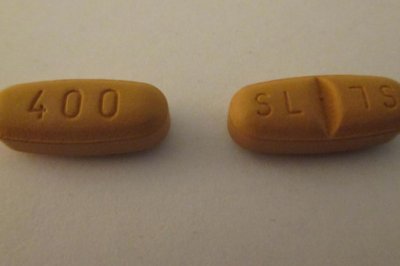Cancer drug may treat severe COVID-19, study finds


Imatinib may help patients hospitalized with severe COVID-19, according to a new study. Photo by Patrick Pelletier/Wikimedia Commons
May 18 (UPI) — Patients with severe COVID-19 who received the cancer drug imatinib were less likely to die than those not treated with it, a study presented Wednesday found.
Nine percent of patients hospitalized with the virus who were treated with imatinib died within 90 days, the data released during the international conference of the American Thoracic Society showed.
Of those treated with a placebo, or sham treatment that provides no clinical benefit and used in clinical trials for comparison, 17% died within 90 days, the researchers said.
Patients treated with the drug, given as an oral tablet twice daily, also spent an average of five fewer days on mechanical ventilation to maintain breathing than those given the placebo, according to researchers.
“In this ongoing pandemic, [imatinib treatment] could result in lower mortality rates and shorter intensive care admissions,” study co-author Erik Duijvelaar said in a press release.
Three other clinical trials currently are evaluating the effectiveness of imatinib for COVID-19, said Duijvelaar, a doctoral candidate at Amsterdam University Medical Centers in the Netherlands.
The findings are based on the experiences of 385 Dutch patients hospitalized with COVID-19, the researchers said.
About half of the patients received imatinib at a dose of 400 milligrams twice daily for a maximum of 90 days, while the rest received a placebo, according to the researchers.
At the time of the study, participants also received other drugs to treat COVID-19, the most common of which was the corticosteroid dexamethasone, in 72%, the researchers said.
As a cancer drug, imatinib is designed to block an abnormal protein that signals cancer cells, they said.
However, in earlier research at Amsterdam University Medical Centers, the drug also was found to block potentially deadly leakage of the small blood vessels in the lungs, a condition called vascular leakage.
Vascular leakage occurs due to inflammation, which is often seen in severe COVID-19, the researchers said. Previous reports have suggested that the drug may be useful in severe COVID-19 as a result.
“Imatinib was considered as a therapeutic option when it became evident that patients with severe COVID-19 had … pulmonary edema,” study co-author Job R. Schippers said in a press release.
This is “a condition in which excess fluid accumulates in the lungs and impairs oxygen uptake as a result of vascular leakage,” said Schippers, a medical doctor-doctoral candidate in pulmonary medicine at Amsterdam University Medical Centers.
